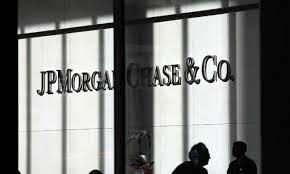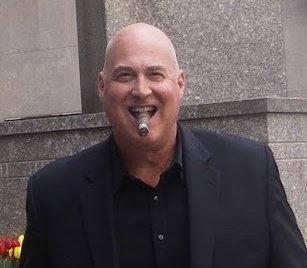Katharine Birbalsingh (headmistress) joins Dave to discuss her founding of Michaela Community School - a free school established in London, and her journey from the left to the right, her approach to disciplining children, the importance of valuing knowledge, believing in equality of opportunity, and more.
|
The Rubin Report
Katharine Birbalsingh (headmistress) joins Dave to discuss her founding of Michaela Community School - a free school established in London, and her journey from the left to the right, her approach to disciplining children, the importance of valuing knowledge, believing in equality of opportunity, and more. Kyle Bass: Hong Kong Protests are Chinese Regime’s “Worst Nightmare” in US China Trade War9/29/2019
American Thought Leaders - The Epoch Times
"What are the major vulnerabilities of the Chinese communist economic system? Can we believe the financial numbers coming out of China? Why is the Chinese economy so dependent on US dollars? And what are the broader implications of this? And how do Hong Kong, and the Hong Kong protests, fit into China’s economic and political future? This is American Thought Leaders 🇺🇸, and I’m Jan Jekielek. Today we sit down with Kyle Bass, the Founder and Chief Investment Officer of the Hayman Capital Management hedge fund, and a founding member of the Committee on the Present Danger: China. We discuss the implications of China’s massive credit-to-GDP ratio, communist China’s non-performing loans and culture of bribery, the role of Wall Street in the US-China trade relationship, and Kyle Bass’s thoughts on the future." O'zapft Is! – The gold/Oktoberfest beer ratio 2019
Since 1950 the inflation rate for Oktoberfest beer averages 3.9% per year. Whereas in 2018 one ounce of gold bought 93 Maß of beer, this year’s equivalent is 115 Maß, reflecting the significant gains of gold since August 2018. The comparison with the gold/Oktoberfest beer ratio thus makes one thing certain: gold protects against paper money’s ongoing loss of purchasing power - or expressed in Wiesn terminology: against dry throats. The long hot summer nights are a thing of the past. The time of the autumn folk festivals is dawning. The most famous of these festivities is the Oktoberfest in Munich. We at Incrementum do occasionally enjoy the Oktoberfest beer. We are particularly interested in our popular gold/Oktoberfest beer ratio, which combines both treasures. Our world famous gold/Oktoberfest beer ratio, which we are featuring year by year in our annual In Gold We Trust report, expresses how many Maß of beer, the traditional Bavarian one-liter beer mug, can be bought with an ounce of gold. This ratio thus reflects the development of the purchasing power of gold in comparison to the purchasing power of the Euro at the Münchner Wiesn. Whereas in 2018 one ounce of gold bought 93 Maß of beer, this year’s equivalent is 115 Maß and thus an astounding 22 Maß more. Measured against the historical average of 89 Maß, the "beer purchasing power" of gold is now considerably above the long-term average. We are though well away from the historic high of 227 Maß per ounce of gold in 1980, and naturally also from the historic low of 46 Maß of beer in 1998. The comparison with the gold/Oktoberfest beer ratio thus makes one thing certain: gold protects against paper money’s ongoing loss of purchasing power - or expressed in Wiesn terminology: against dry throats. You can download the full analysis including our world famous charts and the interpretation in German and English here:
Kind regards from Liechtenstein, Mark J. Valek & Ronald-Peter Stoeferle Incrementum A "The United Arab Emirates provides a 21st century case-study in how to build a national defense capability. Boasting a population of just under 10 million, the Emirates fields an air force, navy, and army composed of over 60,000 uniformed members with a higher per-capita service rate than the United States. Its leaders study at prestigious academies around the world and foreign advisors provide advice, counseling, and technical knowledge. Dubbed “Little Sparta” by former Secretary of Defense Jim Mattis, its growing military presence in the Middle East and Africa are the result of years of dedicated investment and demonstrate ambitions surpassing the federation’s short history.” Click here to continue…
Welcome to the world where things don’t add up. For instance, some people did some things to the Saudi Arabian oil refinery at Abqaiq over the weekend. Like, sent over a salvo of cruise missiles and armed drone aircraft to blow it up. They did a pretty good job of disabling the works. It is Saudi Arabia’s largest oil processing facility, and for now, perhaps months, a fair amount of the world’s oil supply will be cut off. President Trump said “[we] are waiting to hear from the Kingdom as to who they believe was the cause of this attack, and under what terms we would proceed!” Exclamation mark his.
How many times the past few years has our government declared that “we have the finest intelligence services in the world.” Very well, then, why are we waiting for the Kingdom of Saudi Arabia to tell us who fired all that stuff into Abqaiq? Whoever did it, it was unquestionably an act of war. And, of course, what are we going to do about it? (And what will some people do about it?)” Click here to continue... "Who would have thought that JPMorgan's precious metals trading desk is the functional equivalent of the mafia, and that its one-time leader, Blythe Masters, was the mafia's don?
Well, almost everyone who didn't mind being designated a conspiracy theorist for years. And now comes vindication, because this has just been confirmed by the DOJ, which accused the PM trading desks at JPMorgan of being deeply involved in what prosecutors described as a "massive, multiyear scheme to manipulate the market for precious metals futures contracts and defraud market participants." In an indictment unsealed on Monday morning, the DoJ charged Michael Nowak, a JPMorgan veteran and former head of its precious metals trading desk and Gregg Smith, another trader on JPM's metals desk, in the probe. (Blythe Masters was somehow omitted).” Click here to continue… "Many people are concerned that we have an oil problem. Or they are concerned about recession and the need to lower interest rates. As I see the situation, we have a problem of a networked economy that is not functioning well. A big part of this problem is energy-related. Strange as it may seem, energy prices (including oil prices) are too low for producers. If debt levels were growing more rapidly, this low-price problem would go away.
The “standard way” of encouraging more debt-based purchases is by lowering interest rates. But we are running out of room to do this now. We also seem to be running out of economic investments to make with debt. If expected returns on investment were greater, interest rates would be higher. Without economic investments, demand for commodities of all kinds, including energy products, tends to stay too low. This is the problem we have today. Our debt problem and our energy problem are really different aspects of a networked economy that is no longer generating enough total return. History suggests that these periods tend to end badly. In the following sections, I will explain some of the issues involved.” Click here to continue. "In the US China trade war, what’s behind the Chinese communist party’s (CCP’s) strategy, with Liu He walking away from the trade talks at the last minute? What’s the real relationship between Chinese telecom giant Huawei, and the CCP’s quest for global 5G dominance? And how is this all a much, much bigger issue than just trade?
This is American Thought Leaders and I’m Jan Jekielek. Today we sit down with General Robert Spalding, who was a Brigadier General in the US Air Force, chief China strategist for the chairman of the Joint Chiefs of Staff at the Pentagon, and a Senior Strategic Planner for the White House, at the National Security Council. Now, he’s a senior fellow at the Hudson Institute." Jim Rickards explains why there's a financial crisis coming, and in so doing, reviews the unusual origins of his predictive analytics tool. He also explores complexity theory and Bayesian statistics. Jim Rickards is a renowned author and the chief global strategist at Meraglim. Filmed on July 12, 2018 in New York.
"What’s really behind the Hong Kong protest where an estimated 2 million people took to the streets on June 16th, almost one third of the HK population? What do the people of Hong Kong actually have to lose?
And how does this unprecedented public outcry relate to the US-China trade war, and what can be considered an existential crisis currently facing Xi Jinping and the Chinese Communist Party? This is American Thought Leaders, and I’m Jan Jekielek. Today we sit down with Steven Mosher, president of the Population Research Institute, who is also author of the book Bully of Asia: Why China's Dream is the New Threat to World Order, and a founding member of the Committee on the Present Danger: China. We discuss the Hong Kong protest, the US-China trade war, how these relate to the Chinese state forcibly harvesting organs from prisoners of conscience, and how, in dealing with China, the current administration can learn from policies former President Ronald Reagan applied to the Soviet Union." |
AuthorKevin Massengill is an entrepreneur, investor, and award winning Fortune 500 senior executive with a track record of massive business growth. Archives
September 2020
Categories |








 RSS Feed
RSS Feed
